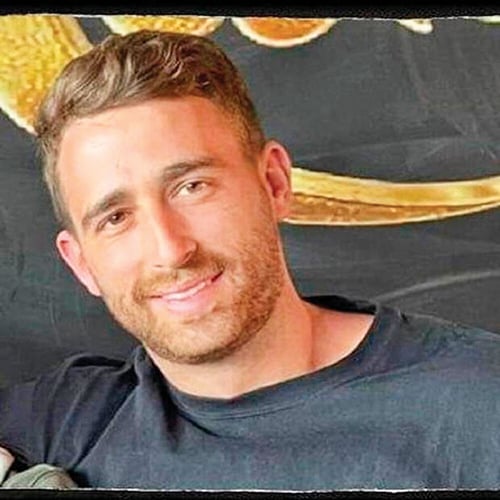Hashem appears to Moshe in quite an enigmatic scene: atop a mountain in a fiery tree. Moshe sees that this tree on fire curiously isn’t being burnt up, and decides to go check out the interesting sight. Not realizing he is on holy turf, Hashem notifies him not to get too close to the tree—אַל־תִּקְרַ֣ב הֲלֹ֑ם—“don’t come closer,” and moreover even the distance he is at is also a holy place—שַׁל־נְעָלֶ֨יךָ֙ מֵעַ֣ל רַגְלֶ֔יךָ כִּ֣י הַמָּק֗וֹם אֲשֶׁ֤ר אַתָּה֙ עוֹמֵ֣ד עָלָ֔יו אַדְמַת־קֹ֖דֶשׁ הֽוּא—“remove your shoes from upon your feet, for the place that you stand upon is holy land.”
If Hashem’s Shechina was on top of the mountain, and Moshe was at the foot of the mountain, why was Moshe’s location also a holy place? Ramban explains that although Hashem’s Shechina was only atop the mountain, and Moshe was quite far from there, nevertheless, once the Shechina appeared atop the mountain, the entire mountain became a holy place.
Much like a fire that even if a little catches will rapidly burn beyond the space it contains, the essence of kedusha is penetrating and can disseminate far beyond the space it contains. Perhaps this is a connection between Hashem appearing in a fire specifically versus another imagery.
I was wondering if this idea of Ramban can relate to us on a personal level. The Chafetz Chaim has a twist on the words כִּ֣י הַמָּק֗וֹם אֲשֶׁ֤ר אַתָּה֙ עוֹמֵ֣ד עָלָ֔יו אַדְמַת־קֹ֖דֶשׁ הֽוּא. In life we may find ourselves in difficult and constrained circumstances and might think that we will wait until things ease up and then devote ourselves to Torah and yirat shamayim. The pasuk teaches us “for that place that you are standing upon”—the circumstances you may find yourself in, “it is holy”—it is capable of being uplifted for it may very well be that Hashem’s will at that moment is for you to connect to Him in exactly those confined conditions (Biurei HaChafetz Chaim al Hatorah, p. 175,176).
Tough times can indeed be consuming, and all one may want is to get out of it. Likewise, one may be wiped after a day’s work or after studying a whole day, one may have a headache or other aches, or various other stresses that are typical in daily life. Whatever the case may be, it’s not contradictory that in difficult times as well there is a tremendous opportunity to squeeze out good deeds despite what we may be going through, as those moments are holier than we may believe. Moreover, Avot d’Rebbi Nattan (3:6) writes that if one studied Torah in leisure, when things were comfortable, one shouldn’t turn away from it during times of limitation and stress, for one deed done under difficult circumstances is 100 times greater than a deed done in comfort.
Pirkei Avot teaches a common yet shaky hope we have, which is to tell ourselves that when things become easier we will apply ourselves. Thus they write (Chp. 2): “Don’t say, ‘when I become available I will study Torah,’ for perhaps one will not become available.” Even when we surpass certain difficulties, many times other distractions come up, and the cycle may just continue. Pirkei Avot comes to affirm that even through our discomforts we have the ability to pull through and grab opportunities for ruchniyut, and to even sit down and concentrate on Torah study. With limited time, limited resources and limited comfort, those moments may be exactly the holy moments Hashem wants us to maximize. We may not see the value and effect of such acts, yet perhaps Ramban’s idea teaches that even a bit of ruchniyut that is implemented and created can cause a spillover effect, to reach and influence us and others in the most profound ways we never thought would.
The Chafetz Chaim has another way to understand the aforementioned pasuk. It happens that many growth-oriented people wish they could be like someone else, someone who appears to be on a much higher level than them in that which they strive for, or someone who seems to have it much easier than them. They say, “if only I had other ‘shoes,’ shoes of so and so—that are greater and more comfortable, etc., then I would be successful!” The pasuk responds: “Remove your shoes”—the way you are is exactly the way Hashem wants you to serve Him and the way you can reach your potential (Chafetz Chaim Hachadash al HaTorah, p. 305, 306). “For the place where you stand upon”—your personal makeup that you “stand upon”—is “holy ground.”
Everyone is given their own set of talents, abilities, strengths and limitations, all of which are meant to assist and reinforce a person’s ascent toward reaching their potential and achieving their personal connection with Hashem. R’ Yitzchak Blazer once went to his rebbe, R’ Yisrael Salanter, and remarked, “If only I had the brain of the Shaages Aryeh, the heart of the Yesod v’Shoresh ha’Avodah, and your middot, I would reach a state of perfection—I would be a perfect and complete person.” Rav Yisrael responded, “Not so; rather, with your brain, with your heart, and with your middot.” We might think we would be better off with the smarts of another, the character of another, the purity of another. However, in truth, Hashem made us the way we are and wants us to use that which he gave us to reach Him in that fashion.
This weeks parsha begins the legacy of Moshe Rabbeinu, the greatest in prophecy and humility, a person who spoke to God face to face, rescued and took the Jews out of Mitzrayim, split the sea, brought down the Torah, saved the Jews from annihilation, etc.—truly a perfect person. Rambam writes that every person is fit to be a tzaddik like Moshe Rabbeinu (Hilchot Teshuva, 5:2). We may not be able to be literally like Moshe Rabbeinu, but if we conjure up all that we have and were given by Hashem to become as great as we can, then indeed, we have reached our personal greatness much like Moshe Rabbeinu himself.
Binyamin Benji is a graduate of Yeshivat Rabbeinu Yitzchak Elchanan and Wurzweiler School of Social Work. He can be reached at [email protected].











